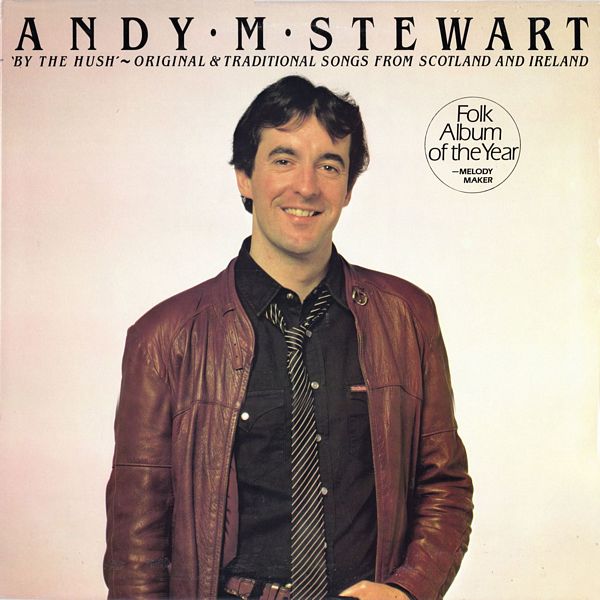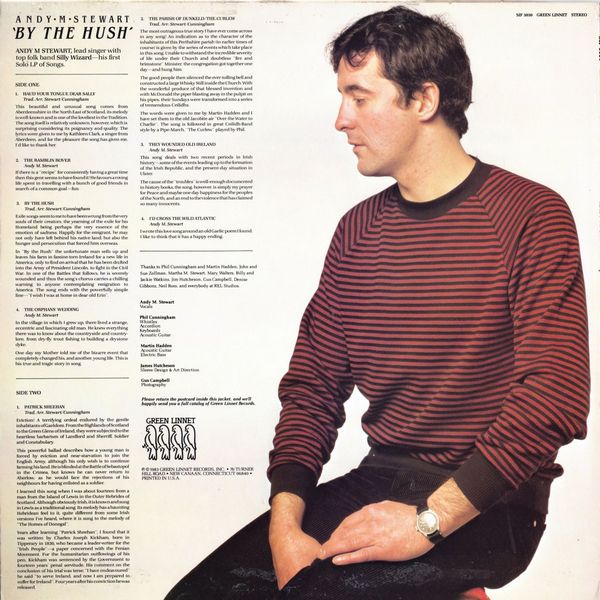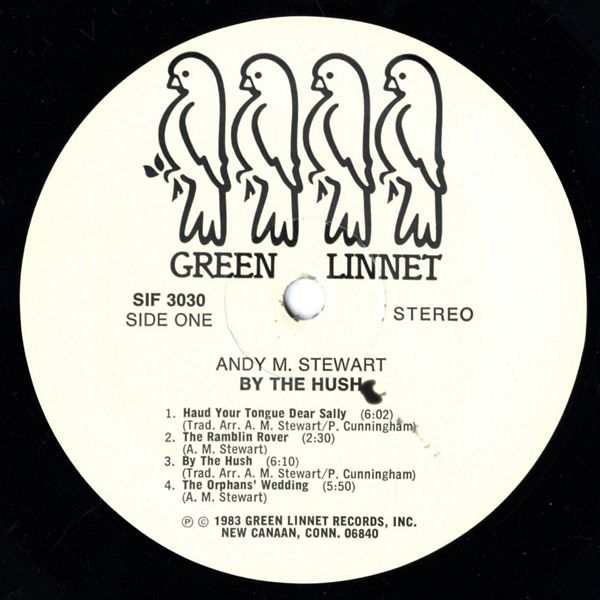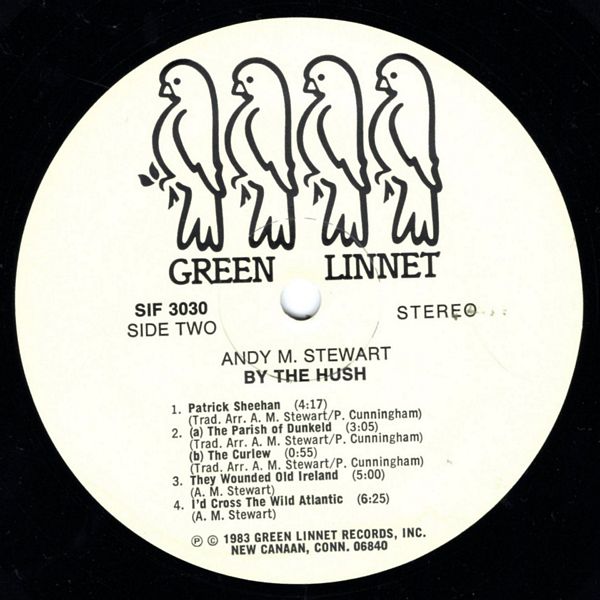
 |



|
Sleeve Notes
Haud Your Tongue Dear Sally — This beautiful and unusual song comes from Aberdeenshire in the North East of Scotland, its melody is well-known and is one of the loveliest in the Tradition. The song itself is relatively unknown, however, which is surprising considering its poignancy and quality. The lyrics were given to me by Kathleen Clark, a singer from Aberdeen, and for the pleasure the song has given me, I'd like to thank her.
The Ramblin' Rover — If there is a "recipe" for consistently having a great time, then this gent seems to have found it! He favours a roving life spent in travelling with a bunch of good friends in search of a common goal — fun.
By the Hush — Exile songs seem to me to have been wrung from the very souls of their creators; the yearning of the exile for his Homeland being perhaps the very essence of the emotion of sadness. Happily, for the emigrant, he may not only have left behind his native land, but also the hunger and persecution that forced him overseas.
In "By the Hush" the unfortunate man sells up and leaves his farm in famine-torn Ireland for a new life in America, only to find on arrival that he has been drafted into the Army of President Lincoln, to fight in the Civil War. In one of the Battles that follows, he is severely wounded and thus the song's chorus carries a chilling warning to anyone contemplating emigration to America. The song ends with the powerfully simple line — "I wish I was at home in dear old Erin".
The Orphans' Wedding — In the village in which I grew up, there lived a strange, eccentric and fascinating old man. He knew everything there was to know about the countryside and country-lore, from dry-fly trout fishing to building a dry stone dyke.
One day my Mother told me of the bizarre event that completely changed his, and another, young life. This is his true and tragic story in song.
Patrick Sheehan — Eviction! A terrifying ordeal endured by the gentle inhabitants of Gaeldom. From the Highlands of Scotland to the Green Glens of Ireland, they were subjected to the heartless barbarism of Landlord and Sherriff, Soldier and Constabulary.
This powerful ballad describes how a young man is forced by eviction and near-starvation to join the English Army, although his only wish is to continue farming his land. Heis blinded at the Battle of Sebastopol in the Crimea, but knows he can never return to Aherlow, as he would face the rejections of his neighbours for having enlisted as a soldier.
I learned this song when I was about fourteen from a man from the Island of Lewis in the Outer Hebrides of Scotland. Although obviously Irish, it is known and sung in Lewis as a traditional song. Its melody has a haunting Hebridean feel to it, quite different from some Irish versions I've heard, where it is sung to the melody of "The Homes of Donegal".
Years after learning "Patrick Sheehan", I found that it was written by Charles Joseph Kickham, born in Tipperary in 1830, who became a leader-writer for the "Irish People"-a paper concerned with the Fenian Movement. For the humanitarian outflowings of his pen, Kickham was sentenced by the Government to fourteen years' penal servitude. His comment on the conclusion of his trial was terse; "I have endeavoured" he said "to serve Ireland, and now I am prepared to. suffer for Ireland". Four years after his conviction he was released.
The Parish of Dunkeld — The most outrageous true story I have ever come across in any song! An indication as to the character of the inhabitants of this Perthshire parish (in earlier times of course) is given by the series of events which take place in this song. Unable to withstand the incredible severity of life under their Church and doubtless "fire and brimstone" Minister, the congregation got togetherone day — and hung him.
The good people then silenced the ever-tolling bell and constructed a large Whisky Still inside the Church. With the wonderful produce of that blessed invention and with McDonald the piper blasting away in the pulpit on his pipes, their Sundays were transformed into a series of tremendous Ceilidhs.
The words were given to me by Martin Hadden, and I have set them to the old Jacobite air "Over the Water to Charlie". The song is followed in great Ceilidh-Band style by a Pipe-March, "The Curlew" played by Phil.
They Wounded Old Ireland — This song deals with two recent periods in Irish history — some of the events leading up to the formation of the Irish Republic, and the present-day situation in Ulster.
The cause of the "troubles" is well-enough documented in history books, the song, however, is simply my prayer for Peace and maybe one day happiness for the peoples of the North, and an end to the violence that has claimed so many innocents.
I'd Cross the Wild Atlantic — I wrote this love song around an old Gaelic poem I found I like to think that it has a happy ending.